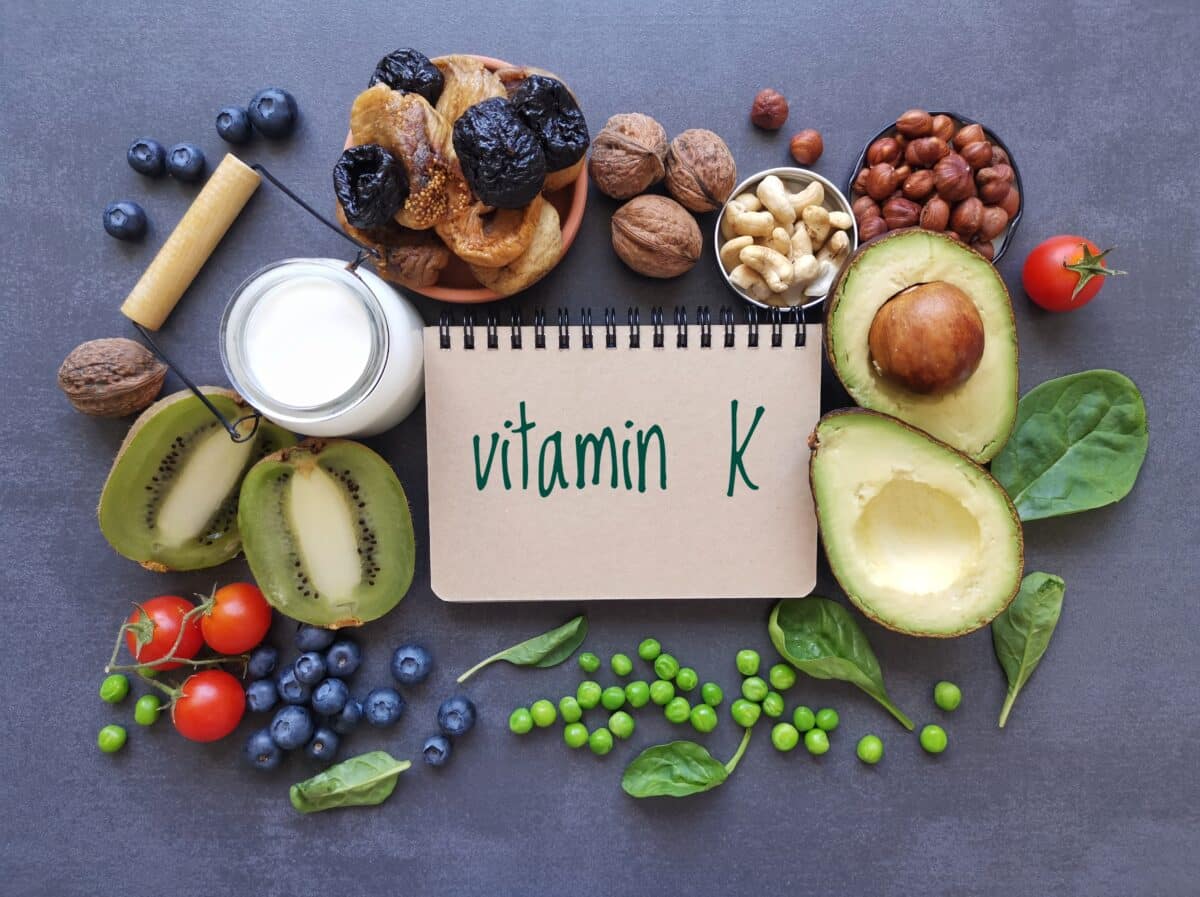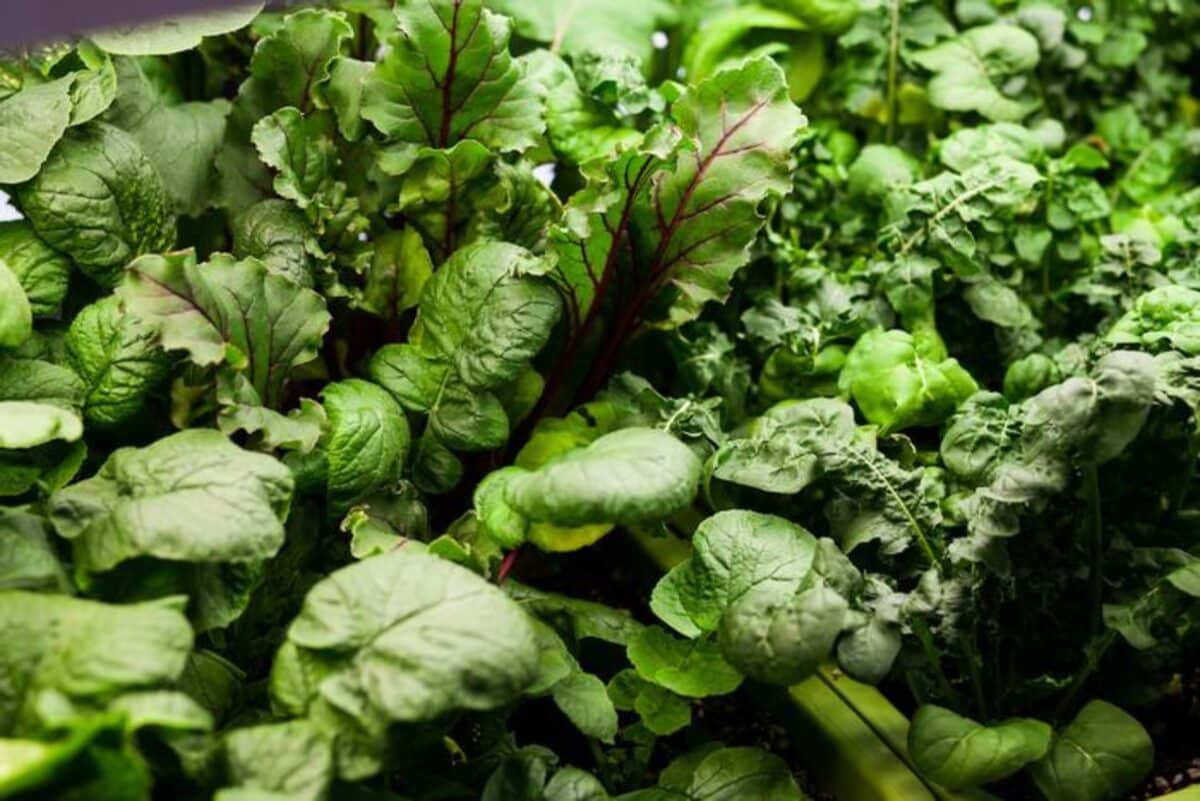
Most Americans don't incorporate enough vitamin K-rich foods in their diets. (Danijela Maksimovic/Shutterstock)
In a nutshell
- Low vitamin K may impair memory and brain health, at least in mice. Mice fed a vitamin K-deficient diet for six months showed worse performance on memory tests, fewer new brain cells in the hippocampus, and signs of increased brain inflammation.
- Brain inflammation, not just memory loss, is part of the problem. The study found that microglia, the brain’s immune cells, became more activated in vitamin K-deficient mice, suggesting a link between low vitamin K and neuroinflammation.
- Older adults may be especially at risk. Since most Americans, especially seniors, don’t get enough vitamin K from foods like leafy greens, the findings raise concerns about how diet might influence cognitive decline with age.
BOSTON — Do you get enough vitamin K in your diet? If not, that lapse might be affecting more than just your bones. New research from Tufts University suggests that skimping on vitamin K, commonly found in leafy greens, could be affecting your brain, too.
The study, published in The Journal of Nutrition, reveals that insufficient vitamin K intake significantly impairs memory, reduces the brain’s ability to generate new neurons, and increases inflammation in mice’s brains. These findings add to mounting evidence that this often-overlooked nutrient plays a crucial role in maintaining cognitive health in aging brains. This work provides some of the first experimental evidence showing exactly how vitamin K deficiency might damage the brain.
The concerning part? Most Americans, especially older adults, don’t consume enough vitamin K. The primary dietary source is green leafy vegetables, which many people don’t eat in sufficient quantities.

Memory Decline in Vitamin K-Deficient Mice
In the study, researchers fed middle-aged mice either a diet low in vitamin K or a control diet with adequate vitamin K for six months. They then put the mice through tests designed to evaluate their memory and learning abilities.
Mice on the low vitamin K diet performed notably worse. In a test designed to measure recognition memory, the vitamin K-deficient mice spent significantly less time exploring new objects, indicating they couldn’t remember which objects they had seen before. They also took longer to learn the location of a hidden platform in a water maze test, suggesting impaired spatial learning.
When researchers examined the mice’s brains, the hippocampus, a brain region crucial for memory, showed fewer new neurons forming in the vitamin K-deficient mice. This process, called neurogenesis, is essential for learning and memory formation throughout life.
Brain Inflammation and Gender Differences
The vitamin K-deficient brains also showed signs of increased inflammation. Microglia, specialized immune cells in the brain, displayed physical characteristics associated with activation, which is a hallmark of neuroinflammation.
The researchers concluded that low vitamin K intake reduced specific vitamin K concentrations in brain tissues and impaired cognitive functions related to learning and memory. They suggest these impairments are likely connected to the reduced neurogenesis and increased inflammation they observed in the hippocampus.

The effects of vitamin K deficiency were more pronounced in male mice, who showed a significantly lower survival rate compared to females on the same diet. Male mice also had lower concentrations of vitamin K in their brain and liver tissues, suggesting they may be more vulnerable to deficiency.
These results align with observations in humans, where some research has found that men may be at higher risk for vitamin K deficiency.
How Vitamin K Protects the Brain
Although this research was conducted in mice, the findings build on previous human research. Data from the Rush Memory and Aging Project showed that higher concentrations of menaquinone-4 (the predominant form of vitamin K in the brain) in brain tissue were associated with better cognitive function near death and fewer signs of dementia in the brain.
While vitamin K is best known for its role in blood clotting, scientists have increasingly recognized its importance for brain health. More research must be done to fully understand exactly how it plays a part, but vitamin K appears to be involved in several brain processes, including protection against oxidative damage and regulation of sphingolipids, which are important parts of cell membranes.
The study’s findings highlight the importance of including vitamin K-rich foods in our diets, especially as we age. Rich sources include green leafy vegetables like kale, spinach, and broccoli, as well as some vegetable oils.
But these findings aren’t just encouraging more salad consumption. Nutrition, particularly adequate vitamin K intake, may be a relatively simple intervention that could help preserve brain function.
With more Americans over age 65 than under 18 expected within the next decade, the pressure to identify strategies for maintaining cognitive health has never been greater. This research offers a promising new avenue for potentially reducing age-related cognitive decline through something as straightforward as dietary changes.
Paper Summary
Methodology
Researchers used 60 middle-aged (9-month-old) C57BL/6 mice, including both males and females. They divided them into two groups: one received a diet with low vitamin K (80 μg phylloquinone/kg), while the control group received adequate vitamin K (1 mg phylloquinone/kg). After feeding the mice these diets for 6 months, researchers conducted behavioral tests on a subset of 26 mice, including the novel object recognition test to measure recognition memory and the Morris water maze to assess spatial learning and memory. Two weeks after completing the tests, researchers collected brain tissues and analyzed vitamin K content, hippocampal neurogenesis (by measuring proliferating cells and newly generated immature neurons), and microglial activation (a marker of neuroinflammation).
Results
Mice fed the low vitamin K diet showed significantly reduced levels of menaquinone-4 (the predominant form of vitamin K in the brain) compared to control mice. They demonstrated impaired recognition memory by spending less time exploring novel objects and took longer to learn the location of a hidden platform in the Morris water maze. The hippocampus of vitamin K-deficient mice contained fewer proliferating cells and newly generated neurons, indicating reduced neurogenesis. Additionally, microglia in these mice showed characteristics of activation, suggesting increased neuroinflammation. Male mice appeared more vulnerable to vitamin K deficiency, with a lower survival rate (53.3% compared to 93.3% in controls) and lower vitamin K concentrations in their tissues compared to females.
Limitations
The researchers acknowledged several limitations. They were unable to measure concentrations of γ-glutamyl carboxylase or vitamin K-dependent proteins due to limited brain tissue samples. The study did not investigate how sphingolipids, which are influenced by vitamin K and important for cell proliferation and neuroinflammation, might be involved in the observed effects. The researchers also noted that they couldn’t determine whether the severity of impairment relates to the age of mice or duration of vitamin K deficiency. Finally, the biological mechanisms behind female mice’s apparent resilience to vitamin K deficiency remain unclear and require further investigation.
Funding and Disclosures
This project was supported by the USDA Agricultural Research Service Cooperative Agreement 58-8050-9-004 and the Robert and Margaret Patricelli Family Foundation. The researchers reported no conflicts of interest.
Publication Information
The study titled “Low Vitamin K Intake Impairs Cognition, Neurogenesis, and Elevates Neuroinflammation in C57BL/6 Mice” was published in The Journal of Nutrition in 2025. The authors include Tong Zheng, Shannon Marschall, Jasper Weinberg, Xueyan Fu, Andrew Tarr, Barbara Shukitt-Hale, and Sarah L Booth from the Jean Mayer USDA Human Nutrition Research Center on Aging at Tufts University in Boston, Massachusetts.







